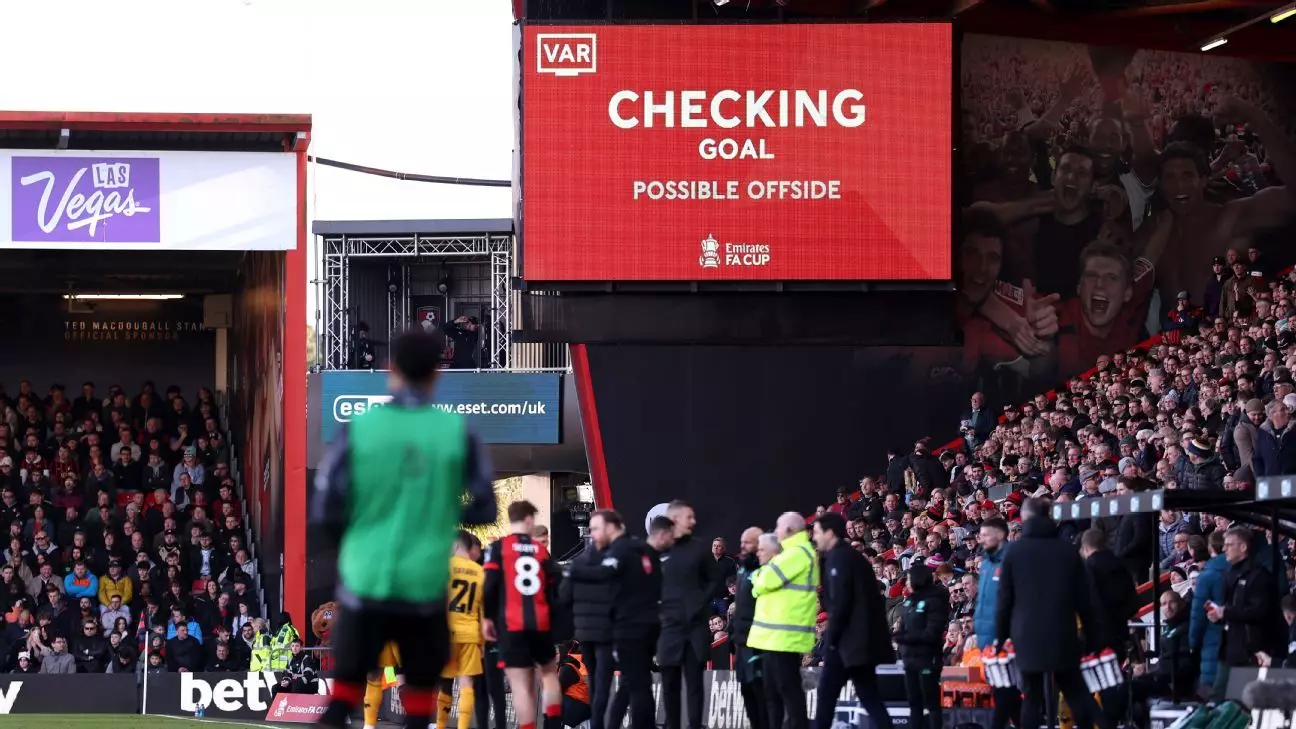The ongoing evolution of football officiating is reaching a pivotal moment as Howard Webb, chief of Premier League referees, signals openness to broadening the scope of Video Assistant Referee (VAR) technology. Currently, VAR moderates critical incidents like goals, penalties, and serious red card offenses, but Webb’s suggestion indicates a desire for a more comprehensive oversight system. Including elements such as yellow cards and corners could drastically transform how decisions are made and perceived by players, managers, and fans.
This proposal is rooted in the belief that technology can serve as a more precise arbiter of fairness. Wrongly awarded corners or missed yellow cards directly influence game flow and outcomes, often fueling controversy and frustration. By expanding VAR’s remit to review these recurrent yet less scrutinized decisions, football could embrace a more transparent and equitable approach. Such steps could mitigate the need for constant debates over referee judgment, providing clearer accountability and potentially reducing human error that sometimes clouds the beautiful game.
However, this extension raises legitimate concerns about the practical implications. Would increased reviews slow down the pace of matches? Could it lead to over-reliance on footage, diminishing the authority of on-field officials? Webb acknowledges these challenges but emphasizes the importance of ongoing dialogue among stakeholders. His openness underlines a broader trend of integrating technology more seamlessly, not as a tool to replace referees but as a supplement that enhances accuracy and fairness.
Shining a Light on Society’s Broader Issues
Webb’s reflections on abuse directed at referees underscore another vital dimension of football’s evolving landscape—respect and civility. Incidents such as death threats and confrontations with officials highlight a troubling shift in societal attitudes, where tempers spill over into online platforms and physical confrontations. Webb rightfully condemns such behavior, framing it as a mirror of broader societal issues that demand collective reflection and action.
This recognition is powerful because it shifts the focus from merely punishing bad behavior to understanding its root causes. A culture of disrespect has crept into sports, fueled by anonymity online and heightened emotions during high-stakes matches. Webb’s stance advocates for a zero-tolerance approach, insisting that abuse, threats, and intimidation undermine the integrity of the game and threaten the safety of those who uphold it.
His comments serve as a wake-up call: technical improvements like VAR are vital, but they must also be accompanied by cultural change. Respect for officials is foundational to fair play, and fostering a more civil environment can ultimately improve the quality of the sport. Fans, players, and governing bodies must work together to cultivate a climate of mutual respect, recognizing that the human element in officiating remains crucial—even as technology becomes more embedded.
The Complexity of Officiating and the Human Cost
Webb’s acknowledgment of the controversial dismissal of David Coote reveals the harsh realities faced by referees in modern football. High-profile mistakes often lead to severe consequences, including reputational damage and suspension, which can permanently alter careers. Webb’s comments suggest that such incidents contribute to an increasingly unforgiving environment for officials, adding stress and scrutiny disproportionate to their human limitations.
This candid admission underscores a fundamental truth: refereeing is an inherently challenging role that requires not only technical skill but also resilience. The debate about whether officials like Coote can return to top-level matches also raises questions about redemption and accountability. Webb’s cautious tone hints at a society eager to punish mistakes but also possibly in need of forgiveness and support for those who serve on the front lines of fairness.
In scrutinizing these issues, we must consider the broader implications. As football continues to evolve technologically and culturally, it is crucial that we balance innovation with compassion. Referees are integral to the essence of the game, and their well-being and fairness must remain a priority. Only then can the sport truly reflect the values of respect, integrity, and continuous improvement that define its global appeal.

